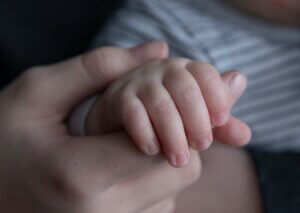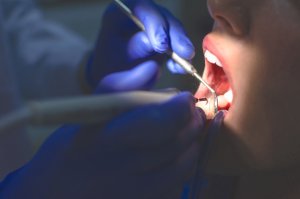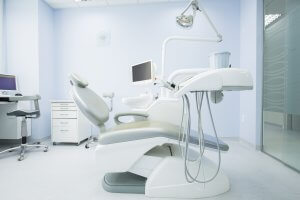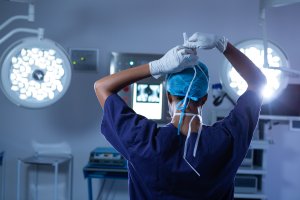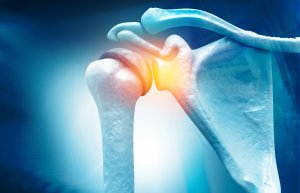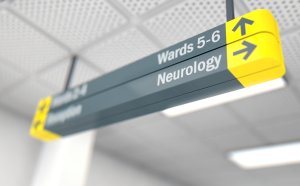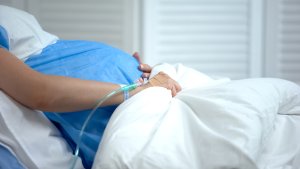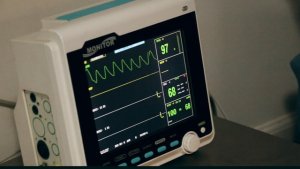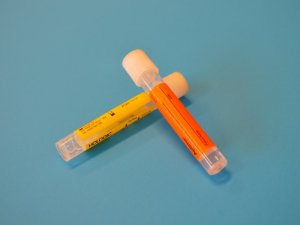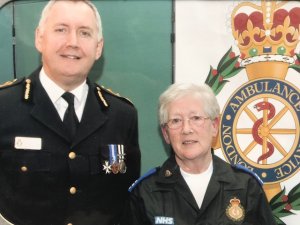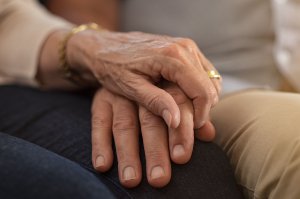Medical Negligence Cases
Examples of Medical Negligence
Read through these examples of medical negligence cases. Find out how we have helped recover compensation for our clients.
“Small but very effective and experienced team so every client benefits from the personal touch but also highly skilled litigation know-how. Capability of the team means they can handle all aspects of very complex cases as well as straightforward matters.”
“Osbornes Law is an established firm which handles a breadth of complex and high-value clinical negligence matters.”
Medical negligence can have devastating consequences for patients and their families. This article explores real-life examples of successful claims against the NHS and other medical malpractice cases. These medical negligence examples demonstrate the importance of holding healthcare providers accountable and seeking justice for those affected by substandard care.
Clinical Negligence Cases
Clinical negligence cases encompass a wide range of medical malpractice examples, from misdiagnosis to surgical errors. The following cases illustrate the complexities involved in proving medical negligence and highlight the significant impact these incidents can have on patients’ lives.
Case 1: Investigation into the death of a 14-year-old girl during an MRI scan
In this clinical negligence case, a teenage girl with autism died following an MRI scan under general anaesthetic. This has sparked an investigation by the Healthcare Safety Investigation Branch (HSIB) into how scanning under general anaesthetic for patients should be reasonably adjusted for those with autism or learning disability.
The findings in this case
An inquest found that the child, in this hospital negligence case, had been under the care of three specialist consultants for a period of 9 years. She was not referred for the investigation of any underlying disorder by a geneticist, despite her parents requesting this on two occasions and; there being a relevant centre near her home. Her underlying condition which caused her death, cardiomyopathy, was therefore undiagnosed.
What is cardiomyopathy?
The NHS’ definition of cardiomyopathy is that it “is a general term for diseases of the heart muscle, where the walls of the heart chambers have become stretched, thickened or stiff. This affects the heart’s ability to pump blood around the body”.
It is a condition usually inherited and is thought to affect 1 in 500 people in the UK.
Autism, learning disability and medical assessments
The HSIB study found that children “with autism, learning disabilities and/or learning difficulties often find clinical environments distressing, which may be reflected in their physiological observations. This may result in diagnostic overshadowing, where problems such as autism (or a medical condition) are attributed as the cause of other new problems, rather than considering other underlying causes, thereby leaving other co-existing conditions potentially undiagnosed.”
This was especially relevant in this case, where the child presented to the hospital on the day of her MRI with a high heart rate and raised blood pressure. This was attributed to her distressed presentation, even though at the time of the test she was calm. During the MRI scan there were four occasions where she needed intervention due to changes in her heart rate.
Recommended change
Following the HSIB investigation, the following recommendations were made to change the way medical practitioners handle similar cases:
There should be a development in the role and competency framework for learning disability liaison nurses to ensure that people with learning disabilities and autistic people receive optimal care which respects and protects their rights.
A system should be developed for sharing care plans for patients with autism, learning disabilities or learning difficulties to enable reasonable adjustments to be made, e.g. a standardised care passport
Our specialist medical negligence solicitors act around the treatment of people with autism. In one case, a 26-year-old man died from a hypoglycaemic attack. He lived alone and could not manage his diabetes, and had suffered over 100 hypoglycaemic attacks. Still, the mental health services did not communicate or liaise with the general medical services regarding his care.
Caught between two different medical services, their view was that he could manage his own condition. In reality, this was incorrect; his autism caused him to mismanage his diabetes, sadly leading to his early death.
Case 2: Failure to diagnose acute myocardial infarction
In this medical negligence misdiagnosis case, Stephanie Prior was instructed to bring a fatal medical negligence claim against North Middlesex University Hospital NHS Trust on behalf of the dependents and the estate of her husband, the deceased. The claim was regarding treatment received by the patient in July 2015.
A 42-year-old male and father of two young children attended North Middlesex Hospital A&E department in the early morning hours. He reported a four-day history of central chest pain radiating to the right side of his chest and right shoulder. IK had an ECG done which revealed sinus tachycardia and some abnormality. He was triaged, and a further ECG was performed along with blood tests.
He was seen by a registrar who diagnosed him with an exacerbation of asthma. He was discharged home with antibiotics, steroids and an inhaler. He continued to experience shortness of breath when he returned home. Despite being unable to sleep, he insisted on going to work later that morning. He collapsed at work that afternoon and upon arrival, the paramedics confirmed his death. A post-mortem report stated the cause of death as
1a. Acute myocardial infarction,
1b. Coronary artery atherosclerosis.
The Defendant admitted liability but disagreed on issues pertaining to quantum – specifically the deceased’s life expectancy and future earnings.
After negotiation, damages awarded: £250,000.
NHS negligence cases
NHS negligence cases represent a significant portion of medical negligence claims in the UK. These examples showcase instances where the National Health Service failed to meet the expected standard of care, resulting in serious consequences for patients and their families.
Case 3: Injury Caused During Treatment
In this doctor negligence case, our medical negligence solicitors were instructed to pursue a claim against Chelsea & Westminster Hospital NHS Trust for injury caused during treatment while our client was under their care.
Our client (DB) was diagnosed with a full rectal prolapse that required surgery. The operation was performed and was successful in terms of prolapse. However, DB’s left ureter was accidentally cut during this operation, which went unnoticed. No note of this was made in the operation notes, and no mention was made post-operatively.
Two days after the operation, DB had a high temperature, and following investigations, DB had a chest infection. In fact, DB was suffering from a urinary tract infection, but fortunately, the antibiotics she was given were also effective against this. DB began to complain of abdominal pain four days after the surgery but doctors attributed this to her wounds and DB was discharged home when the infection seemed to subside.
DB attended Chelsea & Westminster Hospital A&E department with a 5-day history of urine incontinence on 12 April 2015. She was discharged to attend an outpatient appointment with her surgeon but returned to A&E three days later as she had increasing abdominal pain. This point had resolved the incontinence issue. It was noted that she had a distended abdomen and the working diagnosis at the time was one of suprapubic peritonitis and sepsis. Blood tests revealed infection and a further CT scan showed there was an abscess in the pelvis that was subsequently drained. Further investigations followed as DB continued to have a high temperature and a nephrostomy was performed. DB underwent further procedures over the next few months, including the insertion and removal of a ureteric stent, the replacement of a mid-ureteric stent and a ureteric re-implantation in September 2015.
Following her discharge, DB felt low in mood and attended her GP in January 2016. In February DB reported bladder problems. She developed recurrent urinary tract infections. DB was anxious as she was concerned that the stent, inserted in the ureteric reimplantation procedure in September 2015, had not yet been removed. The stent, which should have been removed within 6-8 weeks following the operation, was eventually removed in September 2016. However, in October 2016, DB had already developed two hernias secondary to the re-implantation procedure. DB, therefore, had to undergo a further operation to correct these.
Expert evidence was obtained from a Consultant Urologist and Consultant Colorectal Surgeon. Following the serving of a Letter of Claim, the Trust admitted liability and made an early Part 36 offer in the sum of £40,000, which the Claimant did not accept.
A joint settlement meeting followed, where the NHS compensation payout was £100,000. The NHS Trust also provided a letter of apology addressed to the Claimant.
Hospital negligence cases
Case 4: Failure to diagnose and treat Ogilvie’s syndrome
Our client suffered the consequences of a delayed diagnosis of Ogilvie’s syndrome following the birth of her daughter by caesarean section in September 2015.
Ogilvie’s syndrome is an acute intestinal pseudo-obstruction, the symptoms of which include: abdominal pain, nausea, vomiting, bloating and constipation. If left untreated, it can lead to serious, life-threatening complications such as colon perforation, sepsis and tissue damage.
Following the birth of her daughter, our client experienced persistent abdominal pain and distension. Her condition deteriorated further over the next week, and there was a failure to perform an x-ray of her abdomen and to escalate her care to the surgical team. Five days after the birth of her daughter, a CT scan was performed, which showed intramural gas in the caecum. However, this was not reported to the senior doctor.
As a result of the 9-day delay in diagnosis and treatment, our client went on to suffer a perforation of her bowel which required surgical intervention (She was required to undergo a laparotomy and right hemicolectomy, along with an end ileostomy ten days following the birth of her daughter). If diagnosed promptly, Ogilvie’s syndrome can be treated conservatively with medication. Our client required a prolonged hospital stay which was extremely worrying and stressful for her and her family.
Following a Letter of Claim being sent to the Hospital Trust, limited admissions of liability were made. The hospital admitted that there was a failure to perform an x-ray at an earlier stage, and that a CT scan should also have been performed earlier. However, the hospital were of the view that earlier x-rays would not have led to the pseudo-obstruction being revealed and that our client would have required surgical intervention to treat her condition in any event.
Expert evidence was obtained from a Consultant Radiologist, a Consultant Obstetrician and Gynaecologist and a Professor of Colorectal Surgery. The experts’ reports were all supportive of our client’s case in respect of both breach of duty and causation. As a result of the denial of liability, court proceedings were issued in April 2019. The hospital served a defence to the birth injury claim. However, after a period of negotiation, the case settled out of court for a five-figure sum
Following the settlement of her case, our client commented:
“I am very satisfied with the services provided by Osbornes Law. Throughout the duration of my case (over 3 years) they were extremely responsive and kept me up to date with all the developments and provided explanations. When the Defendant returned with an offer, they worked hard to increase it. I am a very satisfied customer of Osbornes Law”
Case 5: Brain-Injured Woman Awarded 7-figure Damages
Our client, a 76-year-old woman, tripped and fell on some stairs when she was on her way out of a hospital following a routine outpatient appointment. She suffered a significant brain injury.
A CT scan after her fall showed a subdural haematoma with some mass effect and midline shift. She was treated for 2 days with non-surgical treatments, but her condition deteriorated, and she was transferred to a specialist neurological unit. She continued to be treated conservatively, again utilising only non-surgical options until she deteriorated further. After another 7 days following her original fall she underwent a decompressive craniotomy and evacuation of the haematoma and frontal contusions. When the skull vault was opened, the brain was noted to be pulseless.
Postoperatively, our client remained in hospital until she was transferred to a rehabilitation unit, almost two years later, when she was transferred to a nursing home.
The care at the nursing home was poor and our client was very unhappy there. She was moved to an alternative nursing home and it was a great improvement on the previous care home but nevertheless, it did not fully cater for her brain injured state. The care homes had been largely funded by the local authority but with the family providing top up funding.
Our client’s brain injury left her with severely impaired mobility and wheelchair dependent. Her left arm is so weak that there is no useful movement. She can communicate but her memory and concentration are impaired. She suffers from anxiety and distress with regular tearful episodes. There are occasional seizures. Our client was left unable to litigate or manage her finances.
The outcome
Our client had been married since 1962, but she could not live with her husband for over 5 years due to her fall, with only occasional weekend visits to the family home. This was highly distressing for both of them and for the rest of the close-knit family.
Following the settlement, her family are now working towards moving their mother back home, so she can live with her husband again. Adaptations will be required to their home, and a 24-hour nursing care package will be implemented before this can happen.
The final settlement Order for this case was very complex as our client’s predicted life expectancy at the time of settlement was six years, according to the medical experts consulted.
Lessons learned from medical negligence cases
These medical negligence cases examples serve as important reminders of the critical need for vigilance and high standards in healthcare. By examining recent medical negligence cases in the UK, we can identify areas for improvement in medical practice and patient care. These cases also highlight the vital role that experienced medical negligence solicitors play in helping victims of malpractice secure the compensation and justice they deserve. As medical practices evolve, it’s crucial to remain aware of potential risks and continue striving for excellence in healthcare delivery.
Contact us
Call us to speak with a lawyer 020 7485 8811
Email us Send us an email and we’ll get back to you
"Recognised for its expertise in both domestic and international adoption, as well as assisted conception."
“Nicola Hall assisted me on a recent negligence case. I found her helpful, informative and had complete confidence in her ability in getting the outcome I so rightly deserved. I would highly recommend Osbornes Law for any legal matters.”
I have found them to be incredibly knowledgeable and pragmatic in settling claims for their clients.
“I very much appreciate all the help you have offered me throughout this process. I have always found you to respond promptly and professionally to all my enquiries and you have worked very diligently to resolve the divorce settlement for me."
Stephanie Prior is very experienced, with an encyclopaedic medical knowledge. Fights tooth and nail for her clients.
Medical Negligence Accreditations
Medical Negligence CasesVIEW ALL
- 11.4.2023
Osbornes Instructed After Local Authority Data Breach
Osbornes Law has recently negotiated a settlement on behalf of two clients who had their personal information inadvertently released to...
Read more - 7.3.2023
5-figure settlement for infusion leak to mother
Elline Demetriou has reached another successful outcome for a Claimant, who pursued a post C-section birth injury to mother claim...
Read more - 9.2.2023
Perineal Tear case settles for 6-figure sum
Stephanie Prior recently settled a claim relating to a woman who delivered her baby after a traumatic labour. Her son...
Read more - 23.1.2023
Settlement agreed in dental negligence claim
Recent Settlement in a Complex Dental Negligence Case The Medical Negligence team have recently negotiated the settlement of a complex...
Read more - 13.1.2023
Delayed diagnosis of appendiceal cancer
The medical negligence team at Osbornes Law has recently settled a case involving a patient who passed away following a...
Read more - 14.12.2022
Successful settlement for negligent care during kidney transplant...
Claimant v Royal Free London NHS Trust Osbornes have reached a settlement agreement on behalf of a Claimant who brought...
Read more - 10.11.2022
Successful claim against dental practice after negligent treatment
Osbornes Law have reached another successful outcome for a client, who pursued a claim against dental practitioners due to medical...
Read more - 1.8.2022
Bereavement Following Treatment at Basildon Maternity Unit
Case Overview Stephanie Prior’s death by medical negligence claim relating to the death of Gabriela Pintilie has been settled...
Read more - 6.7.2022
GP Negligence claim leading to fatality successfully settled
Osbornes acted for a Claimant who brought proceedings on behalf of the estate of her late son, X, relating to...
Read more - 23.5.2022
Successful Claim Against King’s College Hospitals
The birth injury lawyers at Osbornes Law have recently negotiated the settlement of a case in which our client sustained...
Read more - 14.4.2022
Settlement for Failed Fibroid Surgery
Jodi Newton was instructed in a claim against London North West University Healthcare NHS Trust where our client suffered serious...
Read more - 23.3.2022
Nerve injury following bowel surgery
Stephanie Prior was instructed in a claim against Luton & Dunstable University Hospital where our client sustained an injury to...
Read more - 31.1.2022
Recent fatal medical negligence cases
Osbornes Law specialises in helping families who have suffered a fatality due to inadequate medical care. Our specialist team is...
Read more - 31.1.2022
Melanoma misdiagnosis negligence claim
Client’s Case of Melanoma Misdiagnosis Jodi Newton is acting for a client with a melanoma on her foot, which...
Read more - 31.1.2022
Recent Brain Injury Client Stories
Osbornes Law specialises in helping families who have suffered a brain injury as a result of medical negligence. Our specialist...
Read more - 27.1.2022
Six-figure claim allows family to move home
Six-figure compensation payment for a client Jodi Newton has secured a six-figure compensation payment for her client with cerebral palsy....
Read more - 25.1.2022
Serious Injury Following TVT Surgery
Case Summary Our client, SG, attended her GP in December 2015, complaining of urinary symptoms, including leaking when she laughed or...
Read more - 24.1.2022
Likely settlement of £15-20 million
A client who suffered cerebral palsy injuries at birth was awarded £200,000 as an interim payment in a claim against NHS...
Read more - 12.1.2022
Wrongful birth claim successfully settled
Background to the case Our client, J, fell pregnant in October 2015 and took the difficult decision to undergo a termination....
Read more - 4.1.2022
Five-figure Compensation for Cardiac Negligence
In this cardiac negligence claim, we were instructed by a 42-year-old Polish man who had attended the Accident and Emergency...
Read more - 4.1.2022
6 Figure Settlement For Heart Attack Claim
In this cardiac claim, we were instructed by the widow of a 55-year-old man, who had complained of chest pain...
Read more - 29.10.2021
Medical Negligence Case Study: Iron infusion cannula injury
Nick Leahy, Solicitor in Osbornes Clinical Negligence team recovered damages for his client who suffered an extravasation injury following an...
Read more - 20.9.2021
Osbornes Law Represents Family in Fatal Medical Negligence...
Negligent Hospital Care Leads to Tragic Death Osbornes Law is representing the family of a former NHS employee who suffered...
Read more - 5.8.2021
Vulnerable man suffers stroke after carers fail to...
Grandfather who almost dies after ‘negligent’ care receives £900,000 settlement A grandfather who had a stroke and almost died when carers...
Read more









